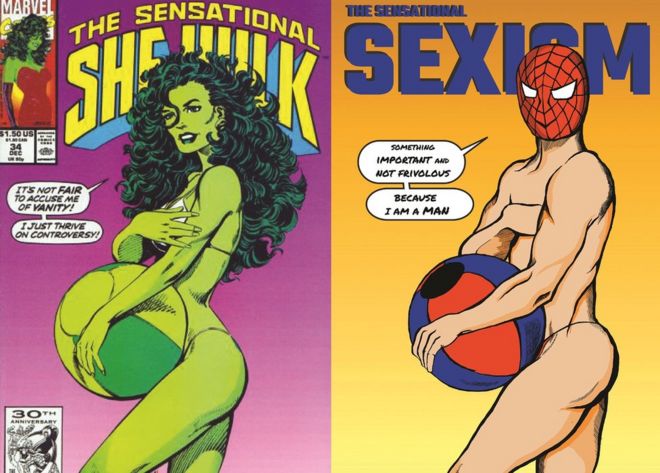Today Trump is mad at (and lying about) the New Yorker.
Fake News, of which there is soooo much (this time the very tired New Yorker) falsely reported that I was going to take the extraordinary step of denying Intelligence Briefings to President Obama. Never discussed or thought of!
— Donald J. Trump (@realDonaldTrump) August 21, 2018
So I found the offending piece: Adam Entous on Brennan’s choice to be publicly critical of Trump.
Naturally, Trump lied about the piece. Entous doesn’t say Trump was going to, he says some advisers wanted to.
As Trump stepped up his public and private attacks on Obama, some of the new President’s advisers thought that he should take the extraordinary step of denying Obama himself access to intelligence briefings that were made available to all of his living predecessors. Trump was told about the importance of keeping former Presidents, who frequently met with foreign leaders, informed. In the end, Trump decided not to exclude Obama, at the urging of McMaster.
See? That does not say he was going to. A president ought to be careful to get his accusations right, if he’s going to make accusations on Twitter at all.
So, to the Entous piece. It starts with Brennan joining intel friends to watch Trump’s inauguration.
As Trump delivered his Inaugural Address, the mood at the viewing party darkened to “one of great worry,” one participant recalled. Brennan found the President’s message “disgraceful,” a view that he thought, as a career intelligence professional, he would keep to himself.
The next day, Trump delivered a campaign-style speech at C.I.A. headquarters in Langley, Virginia, and Brennan’s phone lit up with text messages and e-mails from former agency colleagues who, like him, were outraged. After going to the gym to burn off steam, Brennan drafted a statement decrying Trump’s “despicable display of self-aggrandizement,” which Nick Shapiro, his former deputy chief of staff at the C.I.A., e-mailed to news organizations.
He’d meant to stay out of it but Trump made it impossible. Brennan had always considered himself apolitical…until Trump.
The first public clash between the two men occurred the week before Trump was sworn in as President. In a tweet, Trump falsely blamed U.S. intelligence agencies for leaking Christopher Steele’s dossier to the press and asked, “Are we living in Nazi Germany?” In an interview on Fox News, Brennan said, “What I do find outrageous is equating an intelligence community with Nazi Germany. I do take great umbrage at that, and there is no basis for Mr. Trump to point fingers at the intelligence community for leaking information that was already available publicly.” Trump, in turn, attacked Brennan on Twitter: “Was this the leaker of Fake News?”
Trying to ignore Trump is like trying to ignore a bear that is tearing your front door apart.
A turning point for Brennan was a tweet from the President on March 4, 2017, in which Trump falsely claimed, “How low has President Obama gone to tapp my phones during the very sacred election process. This is Nixon/Watergate. Bad (or sick) guy!” A friend said Brennan was appalled that Trump would use the word “sick” to describe the former President. It was a moment that Brennan told me he remembered “very, very vividly” as he weighed going public with his views about Trump.
At the time, some of Trump’s most fervent supporters in the White House saw former Obama Administration officials as powerful enemies who threatened the new President’s rule, and they agitated for punishing them by revoking their security clearances. The idea was rebuffed by the national-security adviser at the time, H. R. McMaster, who signed a memo extending the clearances of his predecessors at the N.S.C., Republicans and Democrats alike.
That’s where the bit about some advisers wanting to revoke Obama’s comes in.
In September that year Brennan took a deep breath and made himself a Twitter account.
“What I decided to do is not just limit my criticism to his policy choices,” Brennan said. The former C.I.A. director wanted to zero in on what he saw as Trump’s “lack of character,” adding, of his choice, “I really have taken great offense at his personal demeanor, his lack of integrity and his dishonesty.”
What I keep saying. It’s not even necessarily political: he’s a terrible human being.
On December 21, 2017, Brennan tweeted for the first time, about a subject that he cared deeply about—the Lockerbie bombing. When he served as Obama’s top counterterrorism adviser, Brennan met with the families of those killed in the terrorist attack, in 1988. “May the 270 innocent souls lost in the PanAm 103 bombing 29 years ago today never fade from our national memory,” he wrote.
Minutes later, Brennan fired off his first Twitter attack on Trump, in reaction to the President’s threat to punish countries at the United Nations that opposed his decision to move the U.S. Embassy in Israel from Tel Aviv to Jerusalem. (Earlier that month, Brennan issued a written statement calling the decision “reckless” and warning that it would “damage U.S. interests in the Middle East for years to come.”) In the tweet, Brennan compared Trump to a “narcissistic, vengeful” autocrat who “expects blind loyalty and subservience from everyone.”
Brennan told me that he made a conscious decision to make his attacks personal in nature. “I did it knowingly and I did it being aware that it was going to have certain repercussions about how I was going to be perceived,” he said. Brennan said that his goal was to “call out” Trump for being “small, petty, banal, mean-spirited, nasty, naïve, unsophisticated . . . a charlatan, a snake-oil salesman, a schoolyard bully . . . an emperor with no clothes.”
Exactly. That’s certainly why I do it. Of course it’s easy for a blogger who doesn’t have to appease any institutions, but my point is that it needs doing. All the better that someone like Brennan is willing to do it.
As Brennan’s rhetoric escalated in the spring of 2018, Trump complained to senior advisers about his tweets, officials said. McMaster, who opposed revoking the clearances of his predecessors, ended his tenure as national-security adviser in April. And as time passed Trump felt increasingly embittered and less restrained, former aides told me. One former Trump adviser said that Brennan’s rhetoric fed into the President’s narrative. “He has a tremendous sense of being wronged already, just in general. This is part of it,” the former adviser told me.
It’s amazing how narcissists can invert things, isn’t it.
After trading attacks on Twitter with Trump for months, Brennan, on the morning of August 13th, submitted an Op-Ed that he wrote for the Times to the publication-review board at the C.I.A. Former intelligence officers are required to submit their articles and books to the board before they are published so C.I.A. officers can remove any classified information. Brennan’s Op-Ed was particularly critical of Trump, dismissing his frequent claims about there being “no collusion” with the Russians as “hogwash.”
A few hours after Brennan submitted the article to the publication-review board, the White House announced that Trump had decided to strip Brennan of his security clearance. Two U.S. officials called the White House’s timing “a coincidence,” but others said they believed Trump found out about Brennan’s Op-Ed and decided that it was time to act against him.
And here we are.



